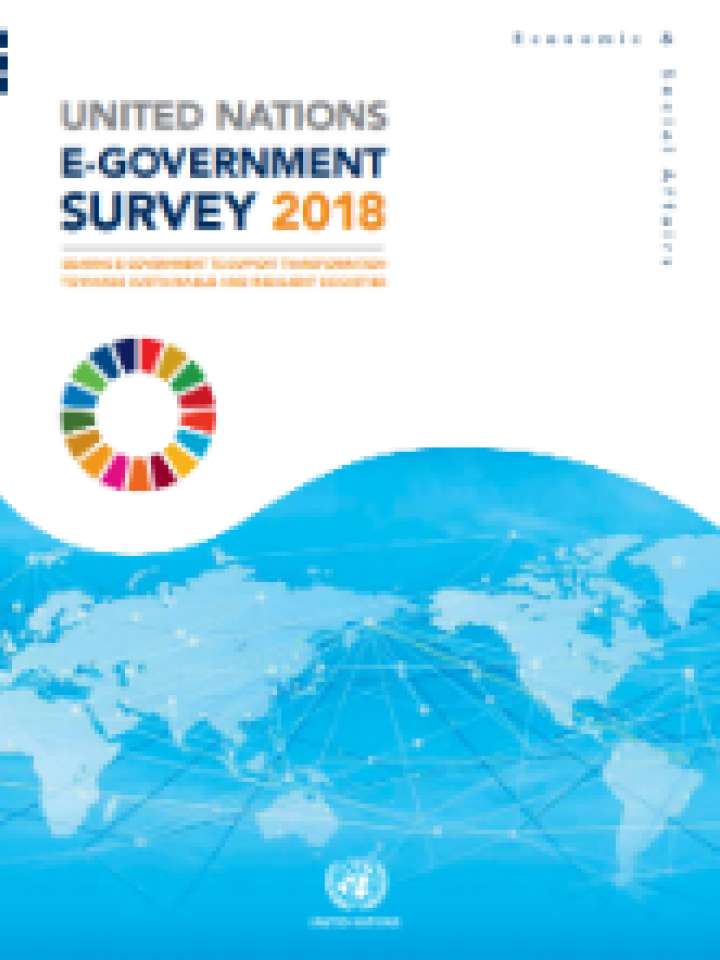United Nations E-government survey 2018: Gearing E-government to support transformation towards sustainable and resilience societies
The 2018 United Nations E-Government Survey (hereinafter referred to as “the Survey”) is issued at the time of key rapid technological changes, with Member States in the third year of the implementation of the Sustainable Development Goals (SDGs). The Survey provides new analysis and evidence to further utilize the potential of e-government to support the 2030 Agenda. This particular edition examines how governments can use e-government and information technologies to build sustainable and resilient societies.
The Survey is the only global report that assesses the e-government development status of all Member States of the United Nations. The assessment rates the e-government performance of countries relative to one another, as opposed to being an absolute measurement. It recognizes that each country should decide upon the level and extent of its e-government initiatives in keeping with its own national development priorities and achieving the Sustainable Development Goals.
The Survey measures e-government effectiveness in the delivery of public services and identifies patterns in e-government development and performance as well as countries and areas where the potential of Information and Communications Technologies (ICT) and e-government has not yet been fully exploited and where capacity development support might be helpful.
It serves as a development tool for countries to learn from each other, identify areas of strength and challenges in e-government and shape their policies and strategies in this area. It is also aimed at facilitating and informing discussions of intergovernmental bodies, including the United Nations General Assembly, the Economic and Social Council and the High Level Political Forum, on issues related to e-government and development and to the critical role of ICTs in development.
The Survey is mainly intended for policy makers, government officials, academia, civil society, private sector and other practitioners and experts in the areas of public administration, e-government, and ICTs for development.
Explore further
